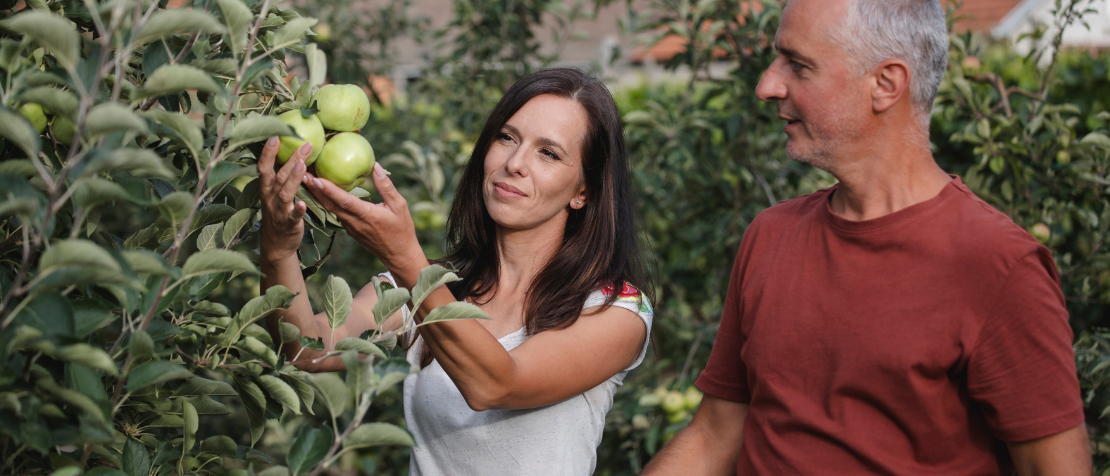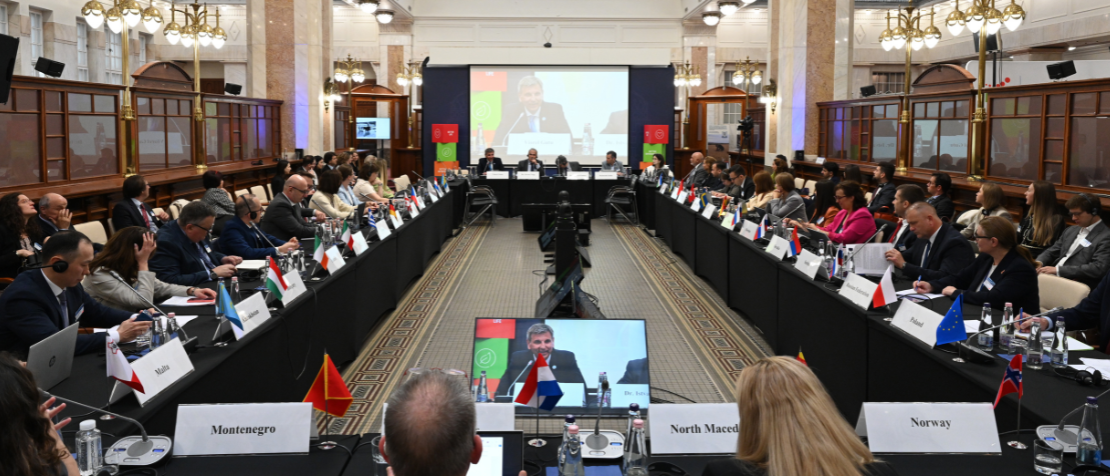Budapest hosts key strategic platform of FAO Members on food and agriculture

©FAO/Sanja Knežević
Starting today, a two-day session of the Informal Consultation, organized by the Food and Agriculture Organization of the United Nations (FAO) will again be hosted by Hungary in Budapest, with the objective to shape and refine the FAO priorities for the Europe and Central Asia region for 2026–2027 in the context of a rapidly changing world and the countdown to the 2030 Sustainable Development Goals (SDGs). Over 30 Members from the European and Central Asia region have come to the session, opened by the Minister of Agriculture of Hungary Istvan Nagy and FAO Assistant Director-General and Regional Representative, Viorel Gutu.
Held every two years, the Informal Consultation is a key moment for FAO Members of the region to exchange ideas on common challenges, opportunities, and emerging issues related to the transformation of agrifood systems in Europe and Central Asia. This year’s meeting is especially significant, taking place as FAO celebrates its 80th anniversary—a milestone year for the Organization and its global mission.
From the war in Ukraine to the escalating impacts of climate change, the 53 Members of the region face no shortage of challenges. Increasing economic crisis and the triple burden of malnutrition continue to strain national systems threatening food security, deepening rural vulnerabilities, and taking away resources that could be directed to sustainable growth. Water stress is of increasing concern for parts of the region.
To mitigate effects FAO is stepping up with tailored, country-driven support aimed at boosting resilience and fostering sustainable rural growth in the region. Ensuring food security and addressing all forms of malnutrition is an overarching priority that is well integrated into FAO’s work across the region. Further important efforts focus on digital innovation and rural transformation, with an emphasis on smallholders and youth; on food system transformation and facilitating One Health; and sustainable natural resources management and resilience.
"Let this consultation be a field where new ideas are sown and partnerships are harvested—where dialogue becomes action, and shared challenges turn into shared solutions," said Viorel Gutu, FAO Assistant Director-General and Regional Representative in his opening words. "We are facing many issues. There must also be many solutions. Together, we can find and implement them.”
“Europe and Central Asia are hit by several crises, including the war, the worsening impacts of climate change and the economic slowdown. These complex, overlapping challenges make our rural areas vulnerable, threatening food security and slowing down recovery. In this situation casts an important role upon international organizations, such as FAO,” said Istvan Nagy, Hungarian Minister of Agriculture.

©FAO/Matyas Temesfoi
As the region looks ahead to the Thirty-fifth Session of the Regional Conference for Europe in 2026 – FAO’s main decision-making body for Europe and Central Asia – delegates in Budapest will review ongoing work, discuss priorities, and reflect on how best to integrate the work of six FAO technical commissions into country-level action, considering a food systems approach. In addition to these vital bodies, the involvement of the non-government sector (including academia, the private sector, civil society, and youth organizations) is making the Informal Consultation a comprehensive forum of discussion.
FAO80 anniversary and exhibit
16 October 2025 will mark the eightieth anniversary of FAO’s founding, giving events this year an extra importance and flavour. Adding a celebratory note to the serious discussions, the FAO80 anniversary will be front and centre through a special agenda item premiering a video message featuring ministers and high-level voices from the region, sharing their vision on the future of agriculture. Delegates will also be invited to an audio-visual journey – ‘Seeds of Change: A journey through the transformation of agrifood systems in Europe and Central Asia’ – an exhibition set to open for the public this autumn at the Museum and Library of Hungarian Agriculture in Budapest.
The anniversary year marks the start of a new regional initiative to cast light on the future of farming: the new generation of smallholder farmers. FAO is launching a call for to recognize young farmers from Europe and Central Asia in order to promote those people who stand at the forefront of change in rural areas.
As the region navigates complexity, this week’s Consultation promises not only collaboration and planning—but also inspiration, celebration, and a renewed sense of purpose.

